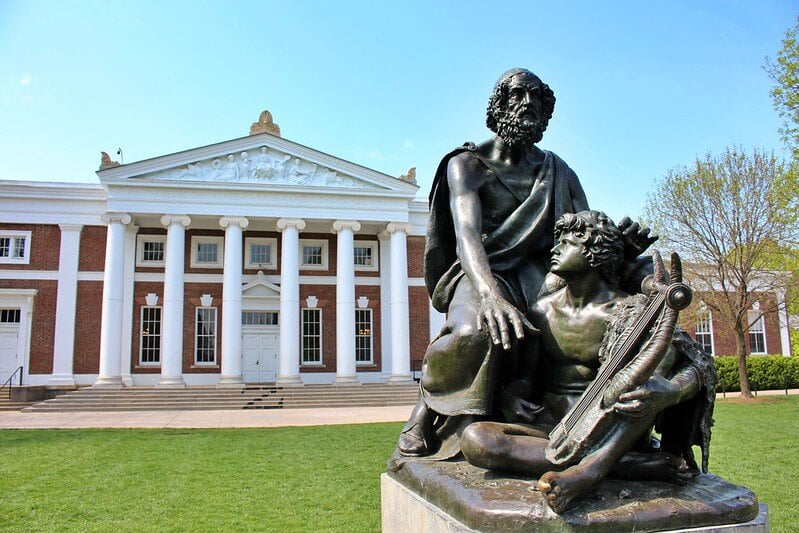Homer, The Odyssey. Translated by Daniel Mendelsohn. University of Chicago Press, 2025. $39.00, 560 pp.
In the fall semester of the year 2000, I took a seminar on Homer’s Iliad. The math was simple: the Iliad has 24 books, and the semester has a little over 12 weeks. Moving at the pace of two books per week much of the fall, we read the entire epic. In the original Greek. In a building located just steps away from the statue of Homer on the University of Virginia’s legendary Lawn. Cast in bronze as a blind bard, Homer is seated at rest yet looking agitated, as though about to break into epic recitation at a moment’s notice. A boy holding a lyre is at the bard’s feet, ready to accompany the performance.
Login to read more
Sign in or create a free account to access Subscriber-only content.
Topics:
